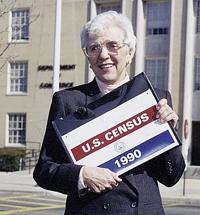SALEM, Ore. (AP) — In the predawn hours of March 20, 1998, a neighbor heard screams coming from the home in Salem of Harriet “Sunny” Thompson and then saw a white man run from the house, leaving Thompson inside dead of stab wounds.
Yet a Black man, Jesse Johnson, was convicted by a jury in 2004 of aggravated murder and sentenced to death. He walked free this week after 25 years behind bars when prosecutors decided to drop retrial efforts, two years after reversed Johnson's conviction.
The jury never got a chance to hear neighbor Patricia Hubbard testify to what she saw and heard that night. After Johnson was convicted, Hubbard told investigators that when she began describing what she had seen to a police detective, he responded, twice using a racial epithet: a Black woman got murdered and a Black man "is going to pay for it.”
Johnson's trial attorney never sought out Hubbard, a fact that the appeals court cited when it reversed the conviction in October 2021.
The Oregon Innocence Project, which represented Johnson in his appeal, on Wednesday accused the state of committing a “heinous injustice” in its handling of the case.
“There were clear and unambiguous statements of racism by a detective involved in the case who discouraged a neighbor from sharing that she witnessed a white man running away from the scene on the night of the murder,” said Steve Wax, Oregon Innocence Project’s legal director.
The district attorney’s office on Tuesday asked the Marion County Circuit Court to dismiss the case against Johnson, saying that “based upon the amount of time that has passed and the unavailability of critical evidence in this case, the state no longer believes that it can prove the defendant’s guilt.” The court granted the motion. Prosecutors said no other suspect has been identified in Thompson’s murder.
On Tuesday afternoon, Johnson walked out of the jail in Salem. Video showed Johnson, smiling and wearing gray sweats with white socks and black slides, walking next to a sheriff’s deputy who was pushing a cart with belongings inside.
“Oh yeah, oh yeah,” Johnson said as supporters hugged him.
Johnson’s DNA wasn’t on any of the tested murder evidence. He repeatedly claimed innocence and refused a plea deal over the years.
Wax, a former federal public defender, said the Marion County district attorney and Oregon Attorney General Ellen Rosenblum resisted requests for additional DNA testing of crime scene evidence “that might have shed light on what really happened to Sunny Thompson.”
“For 25 years, the State of Oregon has fought to defend their deeply flawed case against our former client, Jesse Johnson,” Wax said. “There can be no more heinous injustice imaginable than for Mr. Johnson to have heard a sentence of death pronounced against him all those years ago in Marion County and to then waste away for years on death row.”
Asked for comment, Rosenblum said in an emailed statement Thursday: “The Marion County District Attorney’s office made the decision not to retry this case due to the passage of time and loss of witnesses. We respect their decision.”
The Oregon Innocence Project had asked a court to allow additional DNA testing of crime-scene evidence, but it went unresolved due to the appeals court reversing Johnson's conviction, Rosenblum said.
Hubbard told investigators that she had seen a white man park his van in Thompson’s driveway around 3:45 a.m. March 20, 1998, and go inside. Seconds later, Hubbard heard screaming coming from Thompson’s house, a thud and then silence. She said she then saw a white man run from the house. A few minutes later, she saw a Black man walk down the driveway. She did not identify him as Johnson.
Former Gov. John Kitzhaber declared a moratorium on executions in 2011. Last year, then-Gov. Kate Brown and ordered the dismantling of the state’s execution chamber.









































